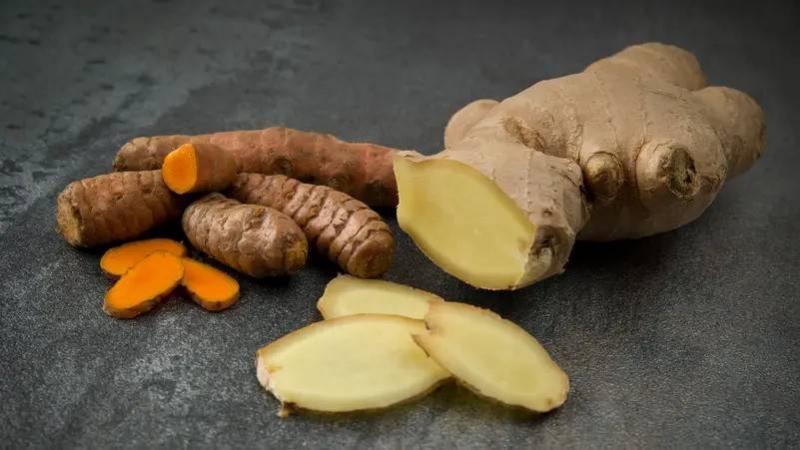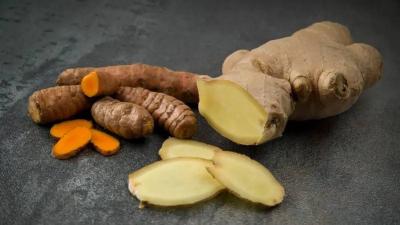Turmeric and ginger are well-known spices and dietary supplements with Asian origins. They belong to the same plant family, Zingiberaceae, and have been used in traditional medicine in India and China for centuries, according to Health. Turmeric is traditionally used to alleviate colds and treat digestive, skin, and upper respiratory tract disorders. It is widely prescribed to reduce inflammation and is also used to relieve nausea and pain, in addition to its immune health benefits. Consuming ginger and turmeric together may reduce inflammation and alleviate symptoms of inflammatory-related diseases such as arthritis, digestive diseases, and even diabetes. However, there may be other potential risks associated with their combination.
#### Benefits of Turmeric
Turmeric is most popular for its anti-inflammatory properties, largely attributed to a micronutrient in the spice called curcumin. Studies have shown that curcumin may help manage inflammatory conditions such as metabolic syndrome, arthritis, hyperlipidemia, inflammatory bowel disease, and colds. However, some studies have found significant differences in sample size, quality, and dosage. Additionally, curcumin is an unstable compound and is not well absorbed by the body, making it difficult to confirm its benefits.
#### Benefits of Ginger
The most common use of ginger is for treating motion sickness or nausea. It is significantly beneficial due to containing over 100 active compounds, primarily gingerol, which can help the body in various ways, including alleviating pain and nausea associated with pregnancy, migraines, and seasonal allergies. One study found that ginger supplements improved fasting blood sugar, hemoglobin A1C (a marker for blood sugar levels), and blood lipid markers among participants with type 2 diabetes. Though many advocate ginger for motion sickness, most studies evaluating this have not found significant benefits. It's also important to note that many studies on ginger have yielded mixed results, involved small sample sizes, and used varying dosages.
#### Promising Results
There is limited research on the combined benefits of turmeric and ginger. However, some studies have shown promising results. A recent study assessed the effects of herbal supplements containing turmeric extract, ginger, and black pepper compared to naproxen, a non-steroidal anti-inflammatory drug, on participants with knee osteoarthritis. After four weeks, participants noted a significant decrease in prostaglandin E2 (PGE2), a compound involved in inflammation linked to conditions like arthritis. Black pepper enhances the body's ability to absorb turmeric, potentially increasing turmeric's beneficial effects as part of the herbal supplements in the study. Both turmeric and ginger exhibit antioxidant and anti-inflammatory activities in the body, suggesting that combining them may enhance the likelihood of reducing inflammation and combating oxidative stress. Another recent study found that turmeric and ginger have a synergistic effect regarding fighting inflammation, meaning they work better together. However, this study was conducted on animals and human cells in vitro, necessitating further clinical studies involving people.
Generally, both turmeric and ginger are safe for healthy adults. Nonetheless, there is room for more robust research to assess the harms of consuming high doses of ginger and turmeric supplements. While ginger can help alleviate nausea or vomiting during pregnancy without serious safety concerns, turmeric supplements may not be safe during pregnancy and breastfeeding. These supplements contain much higher concentrations of turmeric than if a person used it as a spice in food. There isn't enough research on high turmeric intake during pregnancy or breastfeeding. Experts recommend ensuring the content of any dietary supplement combining ginger and turmeric, as packages can sometimes contain high levels of lead.
#### Potential Drug Interactions
Turmeric and ginger affect blood clotting, blood sugar, and blood pressure, indicating that one must exercise caution when mixing these supplements with medications that similarly affect the body. If a person is taking certain medications, it is essential to consult a healthcare provider before starting turmeric and ginger supplements.




